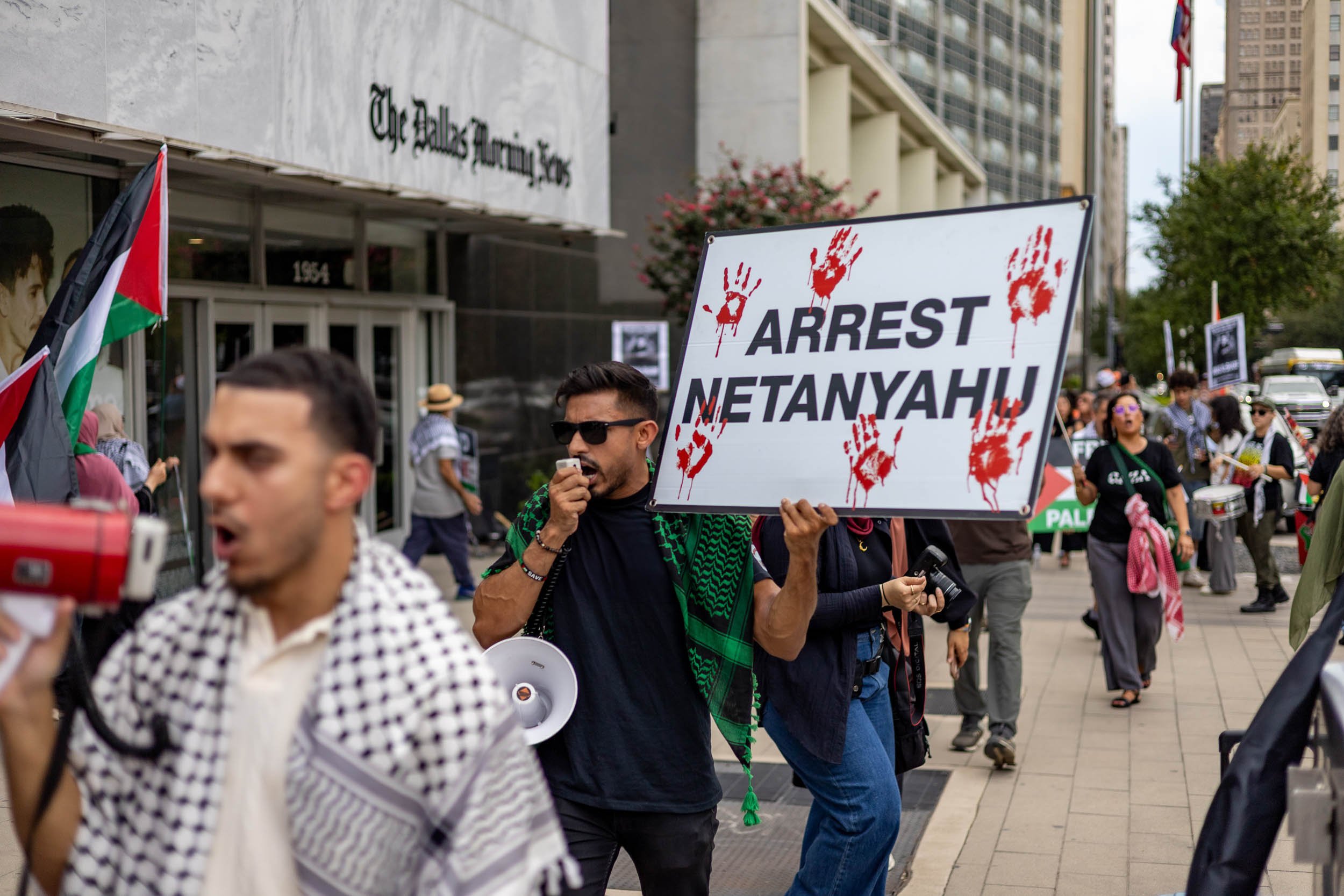Slush Fun
At least one Texan has benefited from Rick Perry's Enterprise Fund.

For the past six years, Texas Gov. Rick Perry has lorded over a controversial stash of taxpayer money known as the Texas Enterprise Fund, dispensing huge sums—$345 million and counting—to large corporations, ostensibly to spur job growth. Critics call it the governor’s slush fund. “He takes from us so that he can play with his corporate slush fund and award his friends’ businesses,” said Debra Medina, one of Perry’s two challengers for the GOP gubernatorial nomination, at a recent candidate’s debate.
Perry defends the fund as a much-needed economic-incentive program. He credits the disbursements with creating 55,000 jobs in Texas and helping keep the state’s economy out of recession. Whether the program has boosted the state’s economy depends on your point of view. But at least one Texan has greatly benefited from Enterprise Fund outlays—Rick Perry.
Many companies that have received money from the fund have, in turn, aided the governor. An Observer investigation has found that 20 of the 55 Enterprise Fund companies have either given money directly to Perry’s campaign (through their political action committees or executives) or donated to the Republican Governors Association, a Washington, D.C.-based group that Perry presided over in 2008.
The 20 companies have received a combined $174.2 million from the Enterprise Fund. During the same time period, those 20 corporations have donated $2.2 million to Perry and the governors association. Several companies made donations around the time they received grants from the Enterprise Fund. It’s even possible that taxpayer money from the fund came full circle into Perry’s own campaign.
Perhaps no company better illustrates the flow of money than Hewlett-Packard Co. In October 2006, the California-based technology giant received $3 million from the Enterprise Fund to open four data centers in Texas that were supposed to create 420 jobs. The project didn’t exactly go well—the centers never opened, and Hewlett-Packard later had to repay its grant. Nary a Texan got a new job. But before the deal fell apart, Perry and his political allies took in their share of money.
Hewlett-Packard’s political action committee contributed $20,000 to the governor’s campaign. It was one of 18 Enterprise Fund companies whose PACs or chief executives donated to Perry’s campaign, according to an analysis by the watchdog group Texans for Public Justice. The PACs and chief executives forked over a combined $355,000 to Perry’s campaign. (One of the largest donors was Joe Sanderson, the head of Sanderson Farms Inc., a Mississippi-based chicken producer that received $500,000 from the Enterprise Fund in April 2006. Three months later, Joe Sanderson gave $25,000 to Perry’s campaign. He has since given $75,000 more.)
The serious money went to the Republican Governors Association. Organized in 2002, the association raises tens of millions every election cycle to support GOP candidates for governor all across the country. In 2008, Perry served as its chairman, and as its finance chair for the last two years.
Hewlett-Packard has given the governors association $518,767 in corporate money since 2003. Eleven other Enterprise Fund recipients have sent corporate checks to the association during the past seven years, according to an Observer analysis of the group’s campaign filings with the Internal Revenue Service. Many of them gave money repeatedly. The 12 companies contributed nearly $1.8 million in corporate money to the association. Eleven of the 13 are large, national corporations that could have donated to the association for reasons unrelated to Perry or the Enterprise Fund.
Hewlett-Packard was the most generous, but wasn’t alone. FMR LLC, owner of Boston-based Fidelity Investments gave big money ($343,450), as did Lockheed Martin Corp.($211,595), Home Depot Inc. ($189,081), defense contractor Raytheon Co. ($167,175), and the chicken producers at Sanderson Farms ($102,145).
It’s difficult to know what the Republican Governors Association did with the millions it received from Texas Enterprise Fund companies. Some of that cash may have circled back to Rick Perry.
In the fall of 2006—10 days before he would be re-elected—Perry received two checks totaling $1 million from the governors association.
The contributions raise some legal questions. That’s because much of the association’s financing comes from corporate sources, according to an Observer analysis of the group’s IRS filings. Craig Holman, a campaign finance expert with Public Citizen in Washington, says it’s well known that the Republican Governors Association accepts and spends corporate money. In some states, that’s legal. But Texas law forbids candidates from receiving or spending corporate money on political campaigns.
Texas’ century-old corporate prohibition was the central issue in the campaign finance scandal that led to the indictment of then-House Majority Leader Tom DeLay in 2005. The DeLay affair involved GOP organizations funneling illegal corporate money to Texas candidates. Similarly, if the governors association gave corporate money to Perry’s campaign in 2006, that would violate Texas law.
However, the association also received several million dollars from non-corporate donors, people like Bob Perry (no relation to the governor). The Houston home builder and prolific GOP donor gave more than $2 million in 2006 alone—enough to account for the contributions to Gov. Perry. In fact, Bob Perry donated $500,000 the day before the governors association sent a $500,000 check to Gov. Perry. It’s perfectly legal for the association to send this non-corporate money to Rick Perry’s campaign.
The flow of money also raises the possibility that some taxpayer dollars traveled the following circuit: from the Texas Enterprise Fund, to various large companies, to the Republican Governors Association, which then donated to Perry’s campaign.
By Oct. 26, 2006, the day the governors association sent Perry’s campaign the first of two $500,000 checks, the group had received nearly $216,000 in corporate contributions from five Enterprise Fund companies during the 2005-06 election cycle. The companies were Tyson Foods Inc. ($20,000), Home Depot ($25,000), Raytheon ($65,000), the U.S. unit of German telecommunications company T-Mobile International AG ($20,000), and Hewlett-Packard ($86,000). IRS records show these corporate donations being paid to the same governors association accounts that later dispensed money to Gov. Perry.
By Oct. 26, 2006, those five companies had been paid $17.5 million by the Texas Enterprise Fund.
Perry may have benefited in other ways. Raising money for someone else can sometimes be more beneficial in politics than receiving it. In that sense, Perry’s fundraising for the governors association may have raised the governor’s political profile.
IRS filings show that some of the top contributors to Perry’s campaigns over the years also donated to the association. Bob Perry, the governor’s top money man, heads the list. He’s given the association nearly $6 million since 2006. San Antonio’s James Leininger and Dallas businessman Harold Simmons have donated $100,000 each in recent years. Several Perry-friendly Austin lobbyists have contributed. So did the Association of Electric Companies of Texas, an Austin-based trade group that sent $25,000 to the governors association.
Then there’s Michele Mosbacher of Houston, who contributed $25,000 to the association on April 18, 2008, according to IRS records. That was three months after Gov. Perry appointed her to a position on the University of Houston Board of Regents.
These contributions may partly explain how Perry ascended to the chairmanship of the association in 2008—a high-profile position among national Republicans—bypassing the group’s then-vice chairman. After serving one year as chairman, Perry is now, as he runs for re-election, the association’s finance chair.
Donations from Texas Enterprise Fund companies also may have aided the governor’s rise in the association. Some companies donated to the association not long after, or not long before, they received money from the Enterprise Fund. The most blatant example is the bank Comerica Inc. In September 2007, Comerica received $3.5 million from the Enterprise Fund to create 200 jobs in the Dallas area. On Feb. 8, 2008, Comerica gave $25,000 to the Republican Governors Association—to date the only contribution the company has ever made to the group that several months earlier had named Perry as its chairman.


